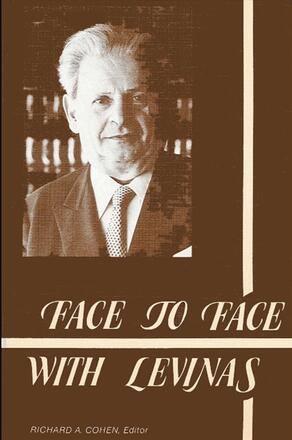
Face to Face with Levinas
Alternative formats available from:
An introduction to the ethical and ontological import of Levinas’ philosophy.
Description
Face to Face with Levinas makes available to American readers the best of recent thought on Emmanuel Levinas. The contributors to this volume are some of the most significant and best-known Levinas scholars in the United States and Europe—Maurice Blanchot, Luce Trigaray, Theodore De Boer, Adriaan Peperzak, Jan de Greef, Alphonso Lingis. Most notably, it features an interview with Levinas by Richard Kearney. This elaborate interview provides a succinct introduction to the themes developed within the book and allows Levinas to restate his philosophy in light of the criticisms that follow.
The contributions range from the imaginative to the academi Together they provide a well-focused introduction to the ethical and ontological import of Levinas' philosophy. .
Richard A. Cohen is Assistant Professor of Philosophy at Loyola College of Maryland. He is translator of Ethics and Infinity and Time and the Other by Emmanuel Levinas.
Reviews
"These essays are not simply a collection of excellent but disparate pieces. Instead the editor's placement shows that they fall into highly significant categories. The first, 'Proximity,' introduces the main themes of Levinas' work and provides a glimpse of his personality. The second, 'From Ethics to Philosophy,' offers a critical consideration of major themes by leading scholars of the significance of his theory of the other person and its relation to logic, language, and reason in Levinas' thought. The third, 'Contexts,' situates Levinas in a comparative context, in conversation with Kant, Hegel, and others. It includes phenomenological accounts of the sensuous (contrasting Levinas and Heidegger) and the erotic, thus developing themes important in Levinas' own writings. " — Edith Wyschogrod, Queens College of the City University of New York